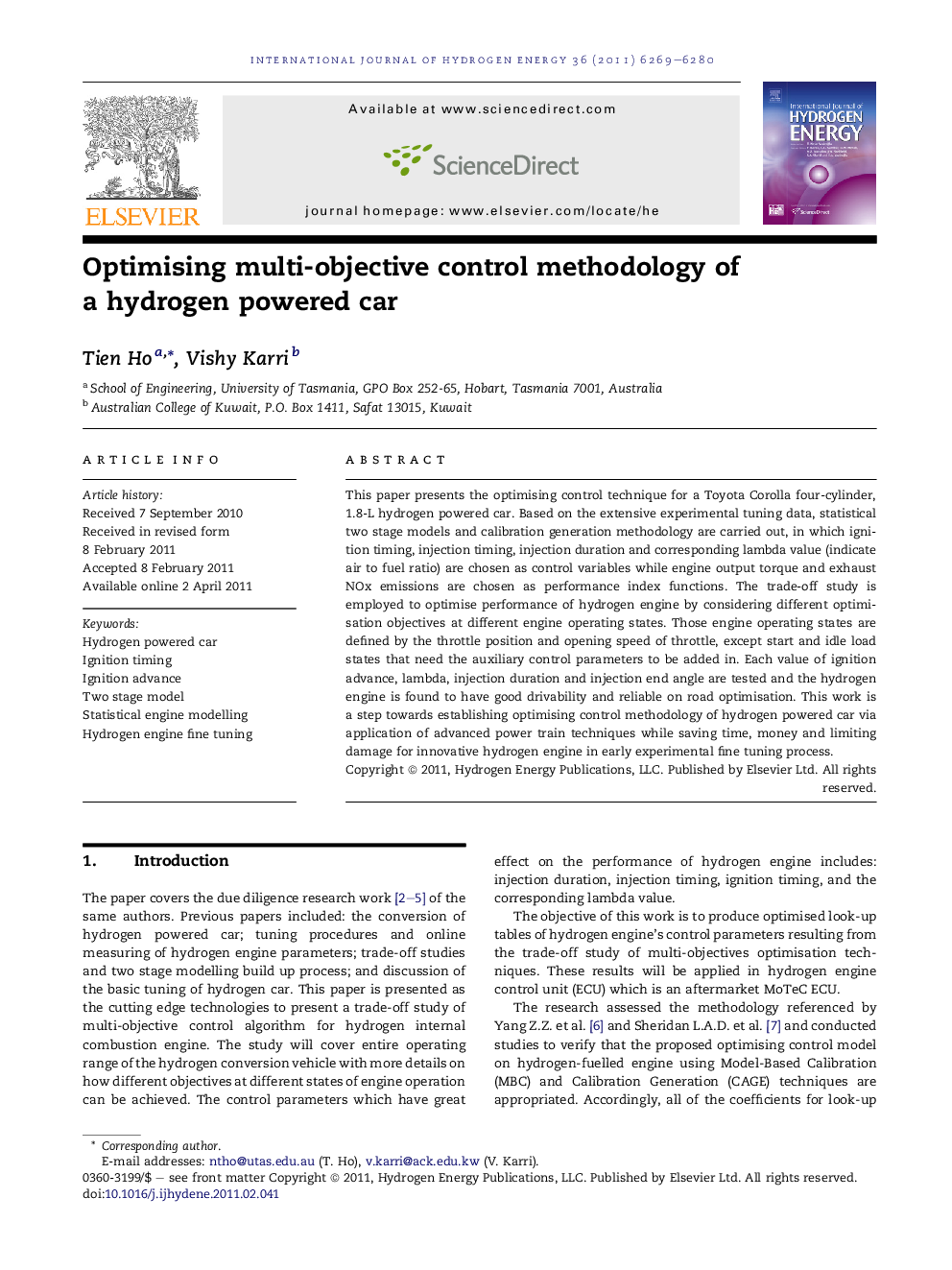| Article ID | Journal | Published Year | Pages | File Type |
|---|---|---|---|---|
| 1279557 | International Journal of Hydrogen Energy | 2011 | 12 Pages |
This paper presents the optimising control technique for a Toyota Corolla four-cylinder, 1.8-L hydrogen powered car. Based on the extensive experimental tuning data, statistical two stage models and calibration generation methodology are carried out, in which ignition timing, injection timing, injection duration and corresponding lambda value (indicate air to fuel ratio) are chosen as control variables while engine output torque and exhaust NOx emissions are chosen as performance index functions. The trade-off study is employed to optimise performance of hydrogen engine by considering different optimisation objectives at different engine operating states. Those engine operating states are defined by the throttle position and opening speed of throttle, except start and idle load states that need the auxiliary control parameters to be added in. Each value of ignition advance, lambda, injection duration and injection end angle are tested and the hydrogen engine is found to have good drivability and reliable on road optimisation. This work is a step towards establishing optimising control methodology of hydrogen powered car via application of advanced power train techniques while saving time, money and limiting damage for innovative hydrogen engine in early experimental fine tuning process.
